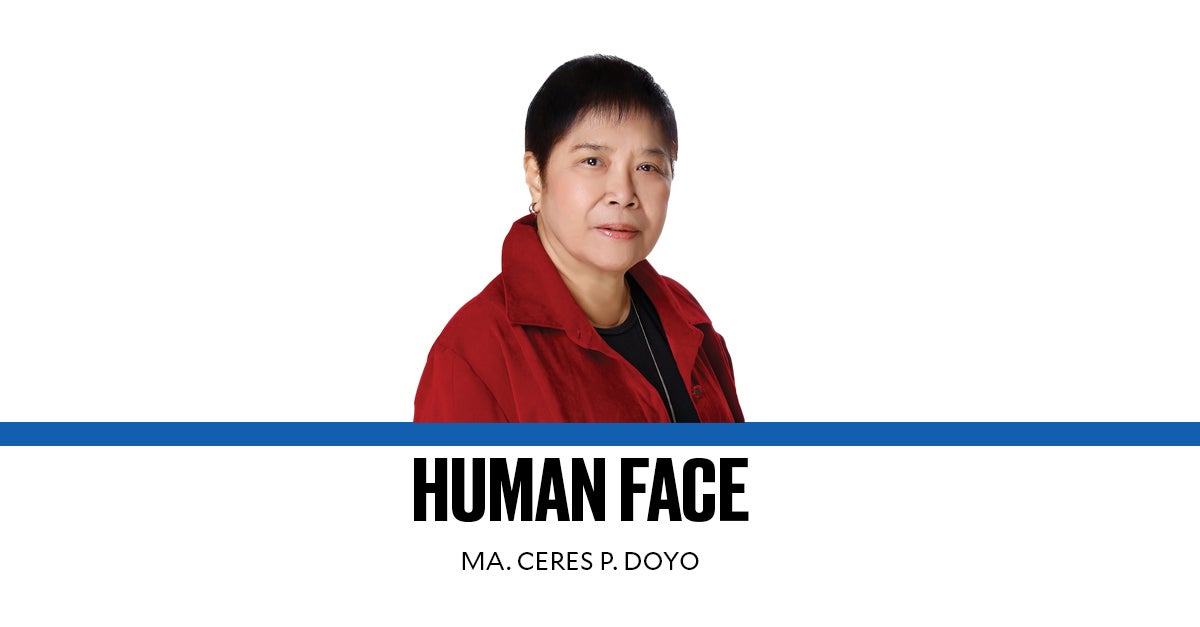About that word resilience

We are again in the season of heavy rains, typhoons, massive flooding, landslides, and storm surges that result in evacuations, displacements, homelessness, deaths, diseases, hunger, ruined crops, businesses grinding to a halt, loss of income, no classes—name it.
Hats off to young and able-bodied journalists who report from waist-deep waters and collapsed structures, who brave howling winds and surging sea waters, who bring to everyone’s attention the plight of countless Filipinos caught in nature’s fury, who highlight government neglect as well people’s uncaring attitude that result in their own suffering and inconvenience (think garbage where it shouldn’t be). Hats off to rescuers and volunteers who risk life and limb, to netizens who, with their cell phones, record their terrifying ordeal so we know. They send images and messages from rooftops, bus tops, and makeshift shelters.
Thanks to mainstream media and Pagasa, the ordinary Filipino can now say without batting an eyelash meteorological phrases such as low-pressure area, intertropical convergence zone, Philippine area of responsibility, etc.
Last Monday, while driving home, I got caught in a traffic gridlock on my usual route. And I was so close to home. It was, I later realized, the result of the heavy downpour and vehicles trying to find higher ground to avoid submerged areas. With prayers and steady hands on the wheel, I was able to wiggle through and zoom off, a bit shaken, but thankful I made it home. I would later see on television and read in my newspaper countless Filipinos’ hair-raising experiences that day. The following days turned out to be much worse for more people. I, too, had been through much worse on the road in the distant past and now I should know when to stay put. I have the choice. What about those who have no choice but to brave the elements?
I am amazed at how some Filipinos in dire straits often let out a chuckle while describing the dolorous state they are in. A grin, a somewhat embarrassed laugh, a smile of resignation to the journalists and social workers who ask questions. What is it that prevents them from sobbing instead? But I cannot bear to watch a farmer wipe away tears as he beholds his ruined crops that are almost ready for harvest. Or a fisherman and his wife viewing the wreckage of their fishing boat. My heart broke when I saw a photo of a mother who lost a grown son to the raging waters. He was born after years of waiting, she said. She was weeping in the arms of a bishop.
And I remembered the words of Pope Leo XIV: “A bishop is not a little prince sitting in his kingdom. He must walk with his people, suffer with them.”
That R-word—resilience/resilient—will probably not be used often this season after it got its share of bashing a couple of years ago. It had been an overused word, a word to describe the Filipino spirit in defying all odds and rising to the occasion. Sounds cliché. Resilience means being able to endure stress and strain and recover quickly; it is “the willingness to engage with challenge, change, and complexity actively; to allow ourselves to be enhanced and not diminished by the experience.” Its synonyms: strength, persistence, tenacity, potency, perseverance, power, stubbornness.
In Filipino, it is katatagan.
When it was being used so often to describe the Filipino spirit in the recent past, as when the three-year COVID-19 pandemic (2020 to 2022) struck without mercy worldwide, the word got a bad press. Among Filipinos, of course. “Filipino resilience.” “The resilient Filipino.” Why? Ano raw? Because it was as if Filipinos could live with anything, even massive corruption, while the country was groaning under the curse of an unseen enemy that was totally new and life-threatening.
Remember the government-Pharmally deal during the Duterte presidency that cried to the heavens for retribution?
So off with the word, to paraphrase the Queen of Hearts’ order in “Alice’s Adventures in Wonderland.” While the word paints a positive image, it is also presumptuous as if to say, “You’ll be okay, you will rise from this disaster, you are made of strong stuff. You are also stupid, and you don’t know it.”
The last sentence is how evildoers in high positions presume Filipinos are. “Just give them ayuda” could also mean “Keep them poor and ignorant.”
Next time I hear a person in authority flatter the poor as resilient, I’d probably retort with “They are resilient in the way you want them to be. Your Ayuda Republic wants to keep them in a state of mendicancy.”
—————-
Send feedback to cerespd@gmail.com





















